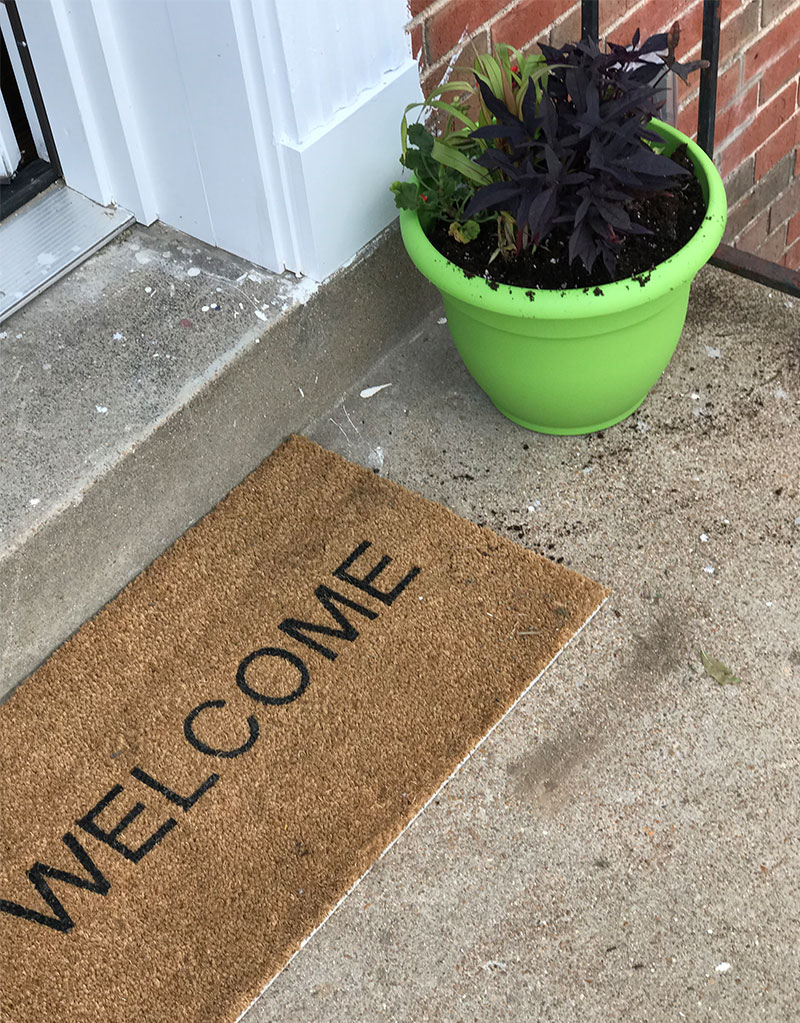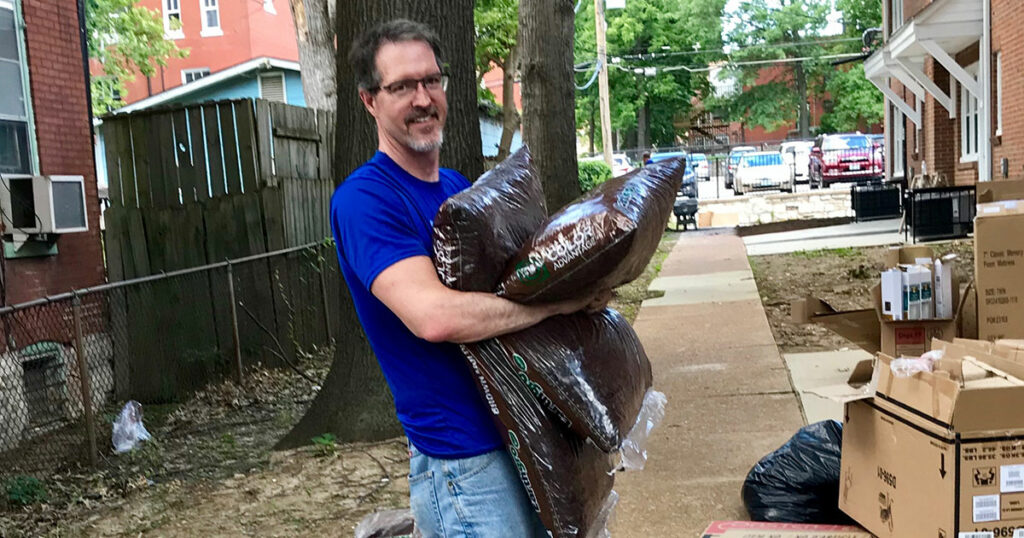
I was recently involved with a Humanitri servant event in St. Louis. The mission — get four houses ready for families facing homelessness.
Because these families with women and children are often coming out of a domestic violence situation, we most likely will never meet them for the sake of their safety and anonymity.
But this is how it should be. It is about them, not us. There is no need for gratitude. It’s simply that we serve our neighbors in love.
And so, when I was asked to start the event with a devotion, I asked God that the house would be built upon the Rock through the work of this Lutheran agency and the neighboring Lutheran church.
I also reminded participants that this was not about landscaping or painting or assembling.
It is about the love of Christ for our neighbor, love shown in this tangible way of providing them shelter and a place to call home.
It seemed appropriate that we had to work rocky soil to plant landscaping as this mercy work will plow the soil for others to plant the seed of the Gospel.
And while one person may plow, another may plant, and another may water, it is the Lord of the Harvest who will bring forth the abundant fields.
Even still, it was while assembling bunk beds in children’s rooms that I really thought about the “why” of this urban mission.
I envisioned who would be living in this house and how they got there.
Perhaps it would be a mother who lives in danger and fears for her life, a mother with a son who wets the bed every night not knowing if he will be abused today.
And this mom finally gets up the courage to pack as many of their belongings that will fit in a garbage bag to leave in haste.
This mom gets up the courage and is willing to risk living homeless because she trusts that eventually someone will show mercy and help them get their lives back on track. She trusts that they will again find the stability needed for her child to thrive.
As I finished building a bunk bed, the mission seemed clear — every child deserves to sleep in their own bed in the safety of their own home, if only we will help.
Our mission trips then should be in partnership with organizations that desire to help others to help themselves, to help lift them out of their circumstances, thereby breaking the cycle.
Ultimately, it is about helping organizations who are in it for the long haul, who want to make a long-term transformative impact, who are concerned with mercy and dignity, and who recognize the identity of all people created in the image of God.
And yet, this by no means excuses us from our personal responsibility to care for those in need, expecting them to simply pull themselves up by their own boot straps.
To illustrate, we recently had a great deal of flooding in St. Louis, and many people were at risk of losing their homes.
So when the call for volunteers went out, I helped with sandbagging in the greater St. Louis area. Because when the water is rising, of course we come to the aid of others.
No one can single-handedly take on a river, and it might even require a water rescue.
Sometimes life becomes like that for the vulnerable and marginalized and abused — problems and circumstances are like a raging river.
Now, maybe it is self-induced at times, but we cannot simply stand idly by to see them swept away. We come to assist because that is compassion.
Here are some simple things to consider with urban mission:
- Does it provide dignity, in collaboration, to help lift people from their circumstances?
- Is it transformative rather than a simple transaction of mercy?
- Is it anchored by altar/pulpit/font of a local church?
- Is it selfless and sacrificial rather than something that benefits us in some way?
If so, then it sounds like a great opportunity.

